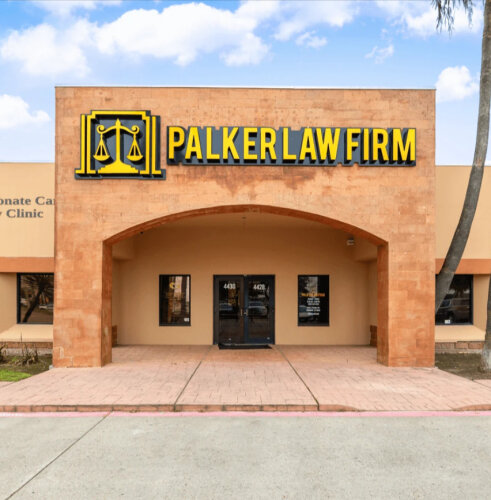Best Insurance Defense Lawyers in Edinburg
Share your needs with us, get contacted by law firms.
Free. Takes 2 min.
List of the best lawyers in Edinburg, United States
About Insurance Defense Law in Edinburg, United States
Insurance defense law covers disputes in which an insurance company provides a legal defense or asserts a legal interest in a loss. In Edinburg, Texas, this practice typically involves defending insurers against third-party liability claims, litigating coverage disputes, handling subrogation matters, and responding to allegations of bad faith or unfair claim handling. Most matters arise in state courts in Hidalgo County or federal courts when federal questions or diversity jurisdiction exist. Local attorneys who handle insurance defense are familiar with Texas insurance law, the Texas Department of Insurance regulatory framework, and local court procedures in the Rio Grande Valley.
Why You May Need a Lawyer
Insurance defense matters can be complex and involve multiple parties, technical insurance policy provisions, and strict procedural deadlines. You may need a lawyer in Edinburg if any of the following apply:
- An insurer denies coverage for a claim you believe is covered by your policy, or offers a settlement you think is too low.
- You are a policyholder facing a bad faith allegation from an insurer seeking recoupment or alleging fraud.
- You are a third-party claimant suing an insured person or business and the insurer has hired defense counsel.
- You are an insurer or insured involved in subrogation after indemnity payments.
- You need representation at mediation, arbitration, or trial over coverage, liability, or damages.
- You want help with pre-suit obligations, regulatory complaints, or responding to demand letters from opposing counsel.
Local Laws Overview
Edinburg is in Hidalgo County in the state of Texas, so insurance defense matters are governed by a mix of federal law, Texas statutes, administrative rules, and local court procedural rules. Key local and state legal aspects to keep in mind include:
- Texas Insurance Code: Contains provisions on unfair claim practices, statutory remedies, regulatory authority, and certain cause-of-action elements for extra-contractual claims. Chapters addressing unfair trade practices and prompt payment obligations are often relevant.
- Common-law duties and bad faith: Texas recognizes contractual and, in some cases, extra-contractual claims against insurers. Allegations of bad faith or breach of the duty to handle claims fairly are frequently asserted in litigation.
- Statutes of limitations: Different claims carry different deadlines. In Texas, typical time limits include shorter periods for personal injury and property damage claims and longer periods for some contract claims. Timelines can determine whether a claim is barred, so acting promptly is essential.
- Texas Rules of Civil Procedure and local court rules: State court practice in Hidalgo County follows the Texas Rules of Civil Procedure and local rules for filing, service, and docket management. Many insurance disputes proceed through discovery, mandatory disclosures, and pretrial settings governed by these rules.
- Regulatory oversight: The Texas Department of Insurance enforces the state insurance code, handles consumer complaints, and publishes guidance that can affect claim handling and proof requirements.
Frequently Asked Questions
What is insurance defense and who does it represent?
Insurance defense is legal work defending insureds or insurance companies when a claim or lawsuit arises. Defense attorneys commonly represent the insurer under a reservation of rights or the insured directly when the insurer has a duty to defend. The goal is to protect the client from liability and minimize exposure for covered claims.
How does coverage differ from liability?
Coverage refers to whether an insurance policy provides financial protection for a particular loss or lawsuit. Liability addresses whether the insured is legally responsible for damages. A lawsuit can present separate questions: one for coverage and one for liability. Coverage disputes can be litigated before or during liability proceedings.
What should I do if an insurer denies my claim?
Preserve all documentation, obtain the denial in writing, and request a written explanation of the reasons for denial. Consider submitting any missing evidence or proof of loss, and consult an attorney promptly to evaluate whether the denial is lawful and what remedies are available.
What is an insurer's duty to defend versus duty to indemnify?
Duty to defend means the insurer must provide a legal defense to the insured against covered claims, often immediately upon receipt of a suit. Duty to indemnify means the insurer must pay any covered judgment or settlement. An insurer may owe a defense even when coverage is unclear, and a reservation of rights letter may be used when coverage is disputed.
Can I sue an insurer for bad faith in Texas?
Texas law allows extra-contractual claims in certain circumstances, including claims under the Texas Insurance Code and, in limited cases, common-law bad faith. These claims depend on the facts of the insurer's conduct and applicable statutes. Consult an attorney quickly because procedural requirements and deadlines often apply.
What deadlines should I be aware of in an insurance defense case?
Deadlines include statutes of limitations for filing suit, response times after being served with process, and discovery and pretrial deadlines set by the court. Statutes of limitations vary by claim type, so get legal advice early to avoid missing critical dates.
How do insurer-appointed defense lawyers work and who controls the defense?
An insurer typically selects counsel to defend an insured under the policy. That counsel represents the insured but is paid by the insurer. Conflicts can arise if the insurer reserves rights or later denies coverage. In such situations, the insured may have the right to independent counsel at the insurer's expense or seek court resolution of the conflict.
What evidence matters most in insurance disputes?
Key evidence includes the insurance policy itself, claim forms, correspondence with the insurer, photos and videos of the loss, repair estimates, medical records in injury claims, witness statements, and any investigative reports. Timely preservation of evidence is critical.
What are typical fee arrangements for insurance defense attorneys?
In defense matters for insurers, counsel is generally retained and paid by the insurer under hourly or panel-fee arrangements. When representing policyholders or claimants, lawyers may use hourly, flat-fee for limited tasks, or contingency-fee arrangements depending on the case type. Always confirm fee structure, billing practices, and who pays for costs up front.
How do I find a qualified insurance defense attorney in Edinburg?
Look for attorneys with experience in Texas insurance law and litigation, familiarity with Hidalgo County courts, and a track record handling similar cases. Ask about trial experience, sample strategies, references, and fee arrangements. If you are a policyholder, confirm whether the attorney will represent you or the insurer and whether any conflict of interest exists.
Additional Resources
When dealing with insurance defense matters in Edinburg, the following local and state entities can be helpful to consult or contact for information and referrals:
- Texas Department of Insurance - state regulator that handles consumer complaints and publishes guidance on claim handling and insurer responsibilities.
- Hidalgo County Clerk and local court offices - for filing requirements, dockets, and court contact information.
- State Bar of Texas and local bar associations - for attorney referral services and professional standards.
- Texas RioGrande Legal Aid and other local legal aid organizations - for low-cost or pro bono assistance if you have limited financial resources.
- Professional organizations such as insurance defense practice groups and continuing legal education providers - for background reading and practitioner materials.
Next Steps
If you need legal assistance in an insurance defense matter in Edinburg, take these practical next steps:
- Gather documents: collect the insurance policy, claim forms, denial letters, correspondence, photos, bills, and any court papers.
- Create a timeline: write a clear timeline of events from the date of loss through all communications and steps taken so far.
- Preserve evidence: secure physical evidence, back up electronic files, and avoid altering relevant records.
- Contact counsel early: consult a lawyer experienced in Texas insurance law and local court practice to assess coverage, defenses, and deadlines.
- Ask the right questions: confirm who the attorney will represent, fee arrangements, likely timelines, and potential outcomes.
- Consider regulatory options: if you are a consumer with a complaint about insurer conduct, ask an attorney about filing a complaint with the Texas Department of Insurance.
- Follow advice on communications: avoid signing releases or accepting settlement offers without legal review, and direct inquiries from opposing parties or adjusters to your attorney once retained.
Insurance defense matters can be legally and procedurally complex. Consulting an experienced, licensed Texas attorney will help you understand your rights, preserve options, and pursue the best available outcome in Edinburg and Hidalgo County courts.
Lawzana helps you find the best lawyers and law firms in Edinburg through a curated and pre-screened list of qualified legal professionals. Our platform offers rankings and detailed profiles of attorneys and law firms, allowing you to compare based on practice areas, including Insurance Defense, experience, and client feedback.
Each profile includes a description of the firm's areas of practice, client reviews, team members and partners, year of establishment, spoken languages, office locations, contact information, social media presence, and any published articles or resources. Most firms on our platform speak English and are experienced in both local and international legal matters.
Get a quote from top-rated law firms in Edinburg, United States — quickly, securely, and without unnecessary hassle.
Disclaimer:
The information provided on this page is for general informational purposes only and does not constitute legal advice. While we strive to ensure the accuracy and relevance of the content, legal information may change over time, and interpretations of the law can vary. You should always consult with a qualified legal professional for advice specific to your situation.
We disclaim all liability for actions taken or not taken based on the content of this page. If you believe any information is incorrect or outdated, please contact us, and we will review and update it where appropriate.









